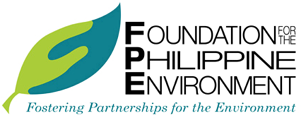Cebu Green Economy Summit Communities in Convergence: Building Liveable and Sustainable Cebu
- Proponent: Cebu Uniting for Sustainable Water (CUSW)
- Amount: 200,000.00
- Project Start Date: May 01, 2012
- Project End Date: June 01, 2012
- Grant Type: Advocacy Grants
- Area: Visayas
- Grant Status: Past
Project Goals and Objectives
The summit is the second of the Green Economy Series which was launched last May 2011 with the theme “Meeting the Challenges of Sustainable Energy Development in Central Visayas”. Taking sustainable development as a guiding principle, a “Green Economy” framework requires the strengthening of three inseparable pillars: economic development, social development and environmental protection. The proposed summit with the theme “Communities in Convergence: Building Livable and Sustainable Futures in the Philippines” is an avenue for multi-stakeholders to interact, discuss, and plan pathways towards achieving livable and sustainable communities. It addresses issues on the allocation of open spaces and built environment, sustainable transportation, climate change adaptation in making cities resilient as well as develop an institutional arrangements in the context of green economy’s overarching framework involving community and civil societies for building livable, resilient and sustainable futures. It aims to achieve the following objectives:
1) To enable a broad-based stakeholder involvement in making communities in the Philippines liveable, resilient and sustainable;
2) To identify, showcase, and learn lessons from emerging and existing best practices on liveable and sustainable communities in the Philippines and beyond;
3) To determine solutions and innovations for reshaping the social and built environment into low carbon, resource-efficient, and inclusive communities.
To meet these objectives, this multi-stakeholder event, involving key representatives from local government units, civil society and business sectors, will provide a venue for plenary and panel discussions on the following themes: healthy and inclusive communities, sustainable transportation, disaster- and climate change-resilient communities, and integrated planning and governance for “mixed use development”.
Sustainability Plan/Measures
4.1. Pre-summit
a. Coordination meetings
This includes organizing the summit secretariat and working group, discussing and designing program details, and ensuring that logistical needs are met before, during and after the summit. Coordination meetings are done throughout the conduct of the project.
b. Build-up activities
Media advocacy, web site development, press conferences, and other activities will be conducted to ensure public visibility of the event and participation of targeted stakeholders.
c. Program design
The design includes identification and finalization of the themes, speakers, and summit format.
d. Logistics
This determines the logistical requirements for the conduct of the event. This includes, among others, venue, food, media coverage, supplies and kits, equipment, and sending out invitation letters to targeted participants. In addition, preparations for the exhibit to be held simultaneously with the summit will be carried out.
4.2. Summit
a. Registration
A secretariat will be assigned to facilitate the smooth registration of participants, ensuring that needs are met, kits are handed out, reimbursements, and other related duties.
b. Exhibit (rental of panels for booths for FPE funding)
A team will handle the conduct and supervision of the exhibit including the opening program, physical arrangement, and provision of assistance to both exhibitors and viewers for the duration of the event.
c. Summit program
The program activities will be monitored to ensure that they follow the format previously designed, that schedules are followed, and if necessary, adjustments will be made according to need. In addition, all presentations, equipment, and logistical requirements are secured.
A workshop will be conducted to formulate a roadmap for private-public partnership, establish areas of convergence considering the various initiatives of academe, business, church & interfaith sectors to complement programs of government.
d. Documentation (for FPE funding)
A team will ensure that documenters are in place for all sessions. Audio and, if necessary, video recordings will be carried out; a formal report/process documentation as an output.
e. Media briefing
Press kits will be made available to the media, and an end-of-summit briefing will be conducted by the media liaisoning team assigned by the secretariat.
f. Field tours(?) delete or make this activitiy optional (to be arranged by another NGO)
For interested participants, field tours will be offered showcasing best practices in Cebu City such as community-based solid waste management in Bo. Luz, eco-house of former city councillor, Nestor Archival, and permaculture site in Brgy. Kamagayan. Details will be incorporated in the preparatory stage for the summit.
4.3. Post-summit
a. Assessment and evaluation
The working group will conduct an assessment and evaluation session to determine if the objectives have been met, and draft the next steps for the implementation of recommendations proposed in the summit.
b. Summit proceedings (for FPE funding)
Proceedings of the summit will be drafted and made available to participants online. Hard copies can be furnished upon request.
c. Final Report
A final report will be submitted to FPE, including a financial statement.

 DISPLAY CALENDAR
DISPLAY CALENDAR